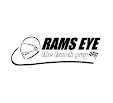It's in a league "well beyond the reach of the current Porsche crowd." That's what Car and Driver had to say about the new Corvette during their test after posting a 1.08 g score on GM's black-lake circle. Much like the outgoing C6 Corvette, opinions about the new Corvette seem to be anonymous. However, unlike the outgoing C6 Corvette which was praised for its performance capabilities and value but criticized for the quality of the interior and the seats, the C7 Corvette Stingray seem to be basically flawless.
We'll get the easy stuff out of the way first - the numbers. The best numbers were achieved by Edmunds, where they were able to do a 0-60 mph sprint in just 3.8 seconds and the 1/4 mile was dealt with in 12 seconds flat at 117 mph. For comparison, the last Grand Sport Edmunds tested did the same deeds in 4.2 seconds and 12.5 s @ 115.1 mph. The Stingray was able to blast through a 6 x 100 ft slalom at 72.8 mph and hold 1.08 g around the skidpad while the Grand Sport managed the slalom at 69.2 mph and held 0.98 g around the skidpad. It took just 93 ft to come to a stand still from 60 mph, 10 ft shorter than a Grand Sport.
2014 Corvette Stingray Z51
|
2010 Corvette Grand Sport
| |
0-60 mph(sec.):
|
3.8
|
4.2
|
1/4-mie (sec @ mph):
|
12.0 @ 117.3
|
12.5 @ 115.1
|
Slalom (mph):
|
72.8
|
69.2
|
Skid Pad Lateral G (g):
|
1.08
|
0.98
|
60-0 mph (ft):
|
93
|
103
|
2012 Porsche 911 Carerra S 7MT
|
2012 Porsche 911 Carerra S PDK
| |
0-60 mph(sec.):
|
4.6
|
3.9
|
1/4-mie (sec @ mph):
|
12.7 @ 113.2
|
12.0 @ 116.5
|
Slalom (mph):
|
71.3
|
71.4
|
Skid Pad Lateral G (g):
|
1.04
|
1.03
|
60-0 mph (ft):
|
102
|
98
|
This is very impressive, considering that a 911 Carerra S PDK will set you back Corvette ZR1 money - over $45,000 more - assuming PDK is the only option on the 911 and the Z51 package and magnetic shocks are the only options on the Corvette. Add that to the fact that the Corvette weighs 110 lb more than the Porsche, and the numbers become even more impressive. So it still has incredible bank-for-your-buck value and you don't even have to live with a budget interior anymore. Everything looks great on paper then but numbers aren't everything.
Chevrolet announced that there will be a new suite of electronics that will aid the driver and help with vehicle control. Since then, I have been concerned that it will move away from the pure driving experience and will basically be Chevy's GTR - a car with incredible capabilities that also claims most of the credit because of how much the car corrects your inputs. This isn't the case with the Corvette.
Make no mistake, the electronics have come a long way. As Edmunds puts it, it allows you to do things you would never consider doing without such elegant back up systems. One of those things was executing a 100-mph four-wheel slide over a mid corner blind crest on a wholly unfamiliar racetrack. This means that it doesn't intervene at every chance it gets to correct your inputs. It lets you do what you want, it simply keeps you from crashing your brand new Corvette. Most advanced electronic stability, traction and power delivery systems attempt to keep you within the limits of grip of the car. Not the PTM system. It lets you go beyond grip limits but keeps you within the limits of control. It's a very different design strategy.
Alex MacDonald, chassis control performance engineer for the Stingray, said that he understands that exiting a corner sideways is, for many, the most rewarding component of driving a car that works right despite it being slower and man is he ever right. You're not always out there to get the best time. You're not always wheel-to-wheel racing. If you think you don't need the PTM system, though, you can turn it off all together and do all the work. Another point for the design team then.
Moreover, when you are done thrashing it around the track and want to put down a serious lap, you'll have no problem doing so. Everything has been dialled up form control, to feedback to response. The new chassis, as we've learned during the reveal, is 57% stiffer. In fact, the C7 Corvette convertible will be 20% stiffer than a C6 Corvette coupe. The steering column is 150% stiffer than the same part on the outgoing 'Vette. It's a textbook rear-drive sports car. A real driver's car.
And thanks to magical magnetic shocks, it's a perfectly comfortable everyday car. "Even Porsche's do-all 911 can't match the ride/handling balance available in the Stingray," said Edmunds. The seats? Well, the base GT seats are not a problem anymore, let alone the optional competition seats that will be available as an option.
This then is the Corvette Chevy should have built a decade ago. It's an everything sports car for everyone. And it carries a base price of $51,995, only $1,400 more than the outgoing C6 Corvette. The goal of gaining market share seems like it's bound to happen but we'll have to wait and see!














Comments
Post a Comment